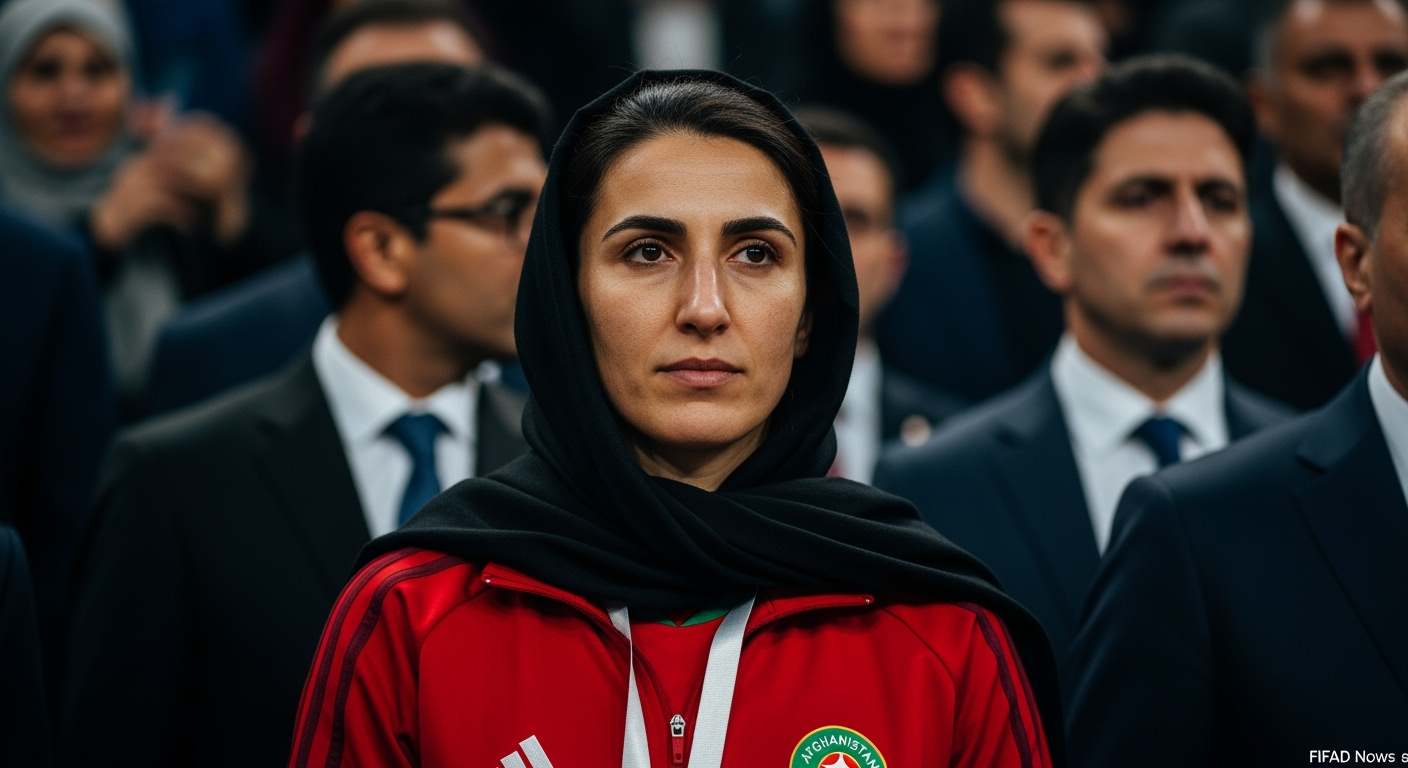Related Articles

Afghan Women's Football Team Forges Historic Path Back to International Arena After Years of Exile




KUALA LUMPUR, Malaysia – A significant naturalization scandal has embroiled Malaysian football, leading to severe sanctions from FIFA and casting a shadow over sports integrity across Southeast Asia. The controversy, involving the alleged use of falsified documents to grant citizenship to seven foreign-born players for the national team, has prompted a regional re-evaluation of naturalization processes and reopened old wounds concerning Malaysia's own contentious history with citizenship.
The football world governing body, FIFA, recently handed down a substantial fine of $438,000 (£325,000) to the Football Association of Malaysia (FAM) and imposed a 12-month ban on seven naturalized players, citing "doctored documentation" and "deliberate fraud" in their eligibility submissions. This decisive action follows an investigation that found evidence of falsified birth certificates of the players' grandparents, which were submitted to establish Malaysian lineage under a "bloodline policy" designed to boost the national squad. The players, hailing from countries including Argentina, Brazil, Spain, and the Netherlands, had rapidly acquired Malaysian citizenship, raising suspicions about the transparency and speed of the process.
The scandal came to public attention after Malaysia's 4-0 victory over Vietnam in June, a win that initially propelled the national team, known as the Harimau Malaya (Malayan Tigers), towards the 2027 Asian Cup qualifiers. However, a subsequent complaint led FIFA to investigate the eligibility of seven players who had participated in the match. The FIFA disciplinary committee concluded that the FAM and the players had used forged or falsified birth certificates of the players' grandparents to secure their eligibility, a finding that FIFA described as "a clear and plain form of cheating." The players involved, including Hector Hevel, Gabriel Palmero, Facundo Garces, Rodrigo Holgado, Imanol Machuca, Joao Figueiredo, and Jon Irazabal, now face a year-long suspension from all football-related activities, impacting their careers significantly.
In response, the Football Association of Malaysia has indicated it will appeal FIFA's decision, maintaining that the heritage players involved are legitimate Malaysian citizens and that any errors were administrative, not deliberate fraud. However, FIFA's report stated it was able to obtain original birth certificates showing significant discrepancies from those submitted by FAM, suggesting a lack of due diligence from Malaysian authorities. Home Minister Datuk Seri Saifuddin Nasution Ismail defended the government's naturalization process, asserting that all decisions comply with the federal constitution and undergo meticulous checks, including interviews, biometrics, and thorough verification. He also mentioned that birth certificates are not required for naturalization under Malaysia's constitution and that ministerial discretion was used to relax residency requirements for some players. Nevertheless, the rapid procedures and the previously undisclosed ancestry details of the players drew criticism, particularly from Indonesian football newspaper Bola, which highlighted a lack of transparency.
The recent football naturalization saga has transcended the realm of sports, stirring political sensitivities within Malaysia and prompting questions about influence and oversight. Some allegations suggest a powerful figure, possibly the Crown Prince of Johor, Tunku Ismail Sultan Ibrahim, a key figure in Malaysian football, played a role in accelerating these naturalizations. The crown prince, who previously owned the Johor Darul Ta'zim football club and served as FAM president, had publicly expressed hopes for government assistance in obtaining Malaysian passports for "heritage players." While no direct involvement in falsifying documents has been proven, the swirling rumors underscore public concerns about potential shortcuts and a lack of accountability in the citizenship process. Former Prime Minister Mahathir Mohamad also weighed in, hinting at a "powerful" individual operating "above the law" behind the swift citizenship approvals. The incident has put pressure on the current government, with opposition parties calling for a Royal Commission of Inquiry into the affair, viewing it as more than a "routine administrative error" but rather a "deliberate act of fraud."
Beyond Malaysia's borders, the scandal serves as a critical "wake-up call" for naturalization practices across Southeast Asian sports. The region has increasingly turned to naturalized players to strengthen national teams, and FIFA's stringent response to Malaysia is likely to prompt other nations to scrutinize their own procedures. Experts like Sasi Kumar, a former Singapore international, have warned that other nations will now be more cautious, recognizing the potential reputational damage and sanctions that can arise from integrity breaches.
This incident marks the first major nationality-forgery case in Southeast Asia since the Equatorial Guinea scandal, and it places Malaysia's football reputation under intense international scrutiny. The case highlights the vulnerabilities in nationalization processes when not rigorously applied and verified, potentially impacting how regional football bodies like the AFC approach similar situations. The silence from the AFC, while FIFA has acted decisively, has also raised questions among regional media about potential political influence.
The recent football scandal resonates deeply within Malaysia, particularly in the state of Sabah, where a historical and far more expansive naturalization controversy known as "Project IC" remains a sensitive issue. Allegations dating back to the 1970s and 1990s claim that successive federal governments systematically granted citizenship and identity cards to hundreds of thousands of illegal immigrants, primarily from the southern Philippines and Indonesia, in exchange for votes. The alleged objective was to alter Sabah's demographics, increasing the Muslim population and shifting electoral patterns to favor the ruling United Malays National Organization (UMNO).
A Royal Commission of Inquiry (RCI) was established in 2012 to investigate Project IC. While its 2014 report concluded that the scheme "probably existed" and blamed "criminal syndicates" and "corrupt officials," it controversially cleared the then-ruling regime and former Prime Minister Mahathir Mohamad of direct involvement, leading to accusations of a "whitewash" by opposition figures. The legacy of Project IC continues to fuel distrust of the central government in Sabah, with politicians noting that "the scars from Project IC are still fresh." This historical context underscores the deep-seated concerns within Malaysia whenever citizenship processes face scrutiny, revealing a long-standing tension between national identity, political maneuvering, and administrative integrity.
In conclusion, the FIFA sanctions against Malaysia for falsified naturalization documents represent a watershed moment, demanding immediate accountability within the country's football administration and sparking wider discussions on governance and ethics in regional sports. It also serves as a potent reminder of Malaysia's complex and often politicized history with citizenship, forcing a renewed examination of who gets to be Malaysian and under what legitimate circumstances, both on the sports field and within the broader society. The scandal ultimately calls for greater transparency and stricter adherence to legal frameworks, not just in Malaysia but potentially across Southeast Asia, to safeguard the integrity of national identity and fair play.